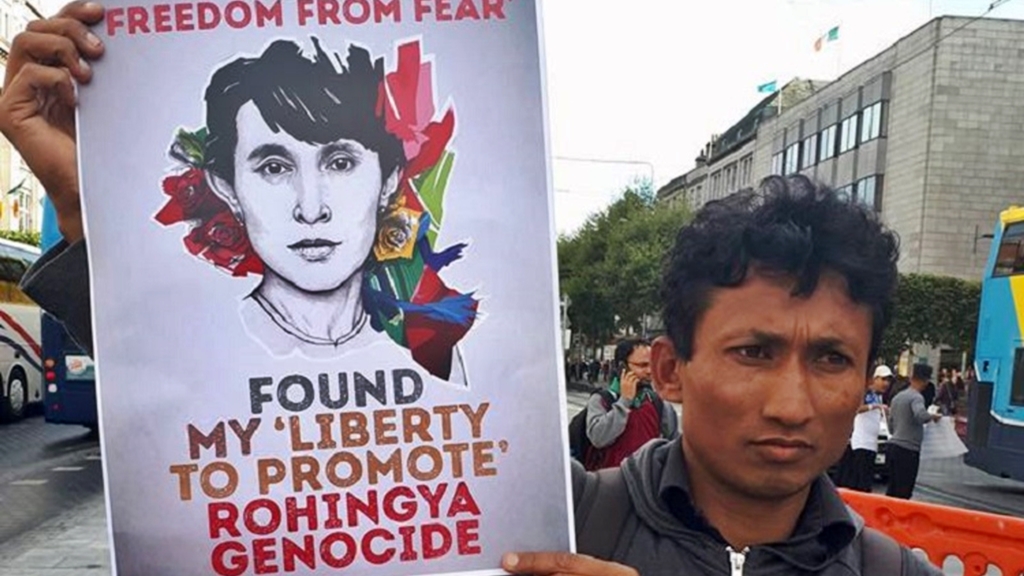
I was a Refugee too – M Rafique
- 19/06/2015
- 0
I am Mohammed Rafique, one of the Rohingya refugees who were re-settled with other 78 members of Rohingya in Carlow, Ireland with the resettlement program of UNHCR & Irish government, for which I shall remain ever grateful for their kind supports toward Rohingya.
I was born in Burma, but I grew up in Bangladesh refugee camp where I spent for more than 17 years together with my family, who took refuge in Bangladesh due to systematic and institutionalized persecutions of Myanmar military regime and fellow Rakhine Buddhist community on Rohingya in Arakan in order to make a Rohingya free land.
Many members of the Rohingya community fled from the native Arakan state of Burma (Myanmar) in 1991-1992 due to the well-organized pogrom by the military junta, and took refuge in 19 camps under the Cox’s Bazaar district of Bangladesh which were acknowledged by UNHCR (United Nations High Commissioners for Refugees) and Bangladesh government.

Since then, approximately 230,000 out of 260,000 refugees had been forcefully repatriated to Burma under the name of Voluntary Repatriation. Currently, there are only two registered refugee camps under UNHCR mandate and another two unregistered refugee camps nearby. Due to the continuous persecutions and insecurity of life in Burma, most of the repatriated refugees are being compelled to be refugee again and languishing in both unregistered camps and local neighborhood of Bangladesh.
“There are examples of children dying just after birth due to lack of care, and there are women frequently suffering from internal bleeding and weakness after”
The life in the camp has no differences from the life in Burma, fully restricted in terms of food, education, healthcare and movement, and also encountered rape, false and fabricated-case. Due to the unmet basic needs such as proper treatment and nutrition, many face malnutrition and infant mortality is very high. There are examples of children death just after birth due to the lack of care and there are women frequently suffering from internal bleedings and weakness after giving birth.
Rape is another major issue faced in the camp. Local gangs from nearby villages come and take away many refugee girls, and some of them are forcefully married by local youths.
False and fabricated cases against innocent refugees are very common in the camp life. Head of refugee families are major targets by local people and government authorities in order to repatriate refugees forcefully. Extortion of money for using mobile phones, computers and many more is another serious issue going on recently.
I have memory of what I had seen. I was young in Burma, and what my family had suffered in Burma was similar with that of suffering in Bangladesh refugee camp for 17 years. Regardless of what I and my family had suffered, the current suffering of Rohingya in Burma is much worse than the recent ones and it echoes my suffering during my refugee life in Bangladesh.
Rohingya in Burma have been suffering countless of organized crimes for more than 4 decades behind the closed door, behind the eyes of international community. A crime which is targeted to all Rohingya community in Burma to completely wipe-out from Arakan state. A crime, which is carried out by all Buddhist Rakhine, Rakhine police, boarder security and riot police. A crime, which is increasing day by day even though there are so many protests or campaigns raising voices to stop the Slow Burning Genocide of Rohingya. A crime, which is supported by even so-called democratic activists and Buddhist Monks neglecting the human rights and the respects for it. A crime that should be highly condemned by any people of any background for the sake of humanity and justice.
Sadly, the world’s most popular human right champion and democratic icon Aung San Suu Kyi has also been acting as hypocrites towards the human rights and the protections for Rohingya in Burma even though we have been living there for hundreds of years and a place where I was born, my parents were born, my grandparents were born, my great-grandparents were born.
I urge international community including all NGOs, all governments and all human beings to call on Myanmar government to stop the slow burning genocide of Rohingya. I specially urge European Commission office to raise their strong voice for the protection of Rohingya. Please don’t look at us as a race or a different religious group but as human beings.






